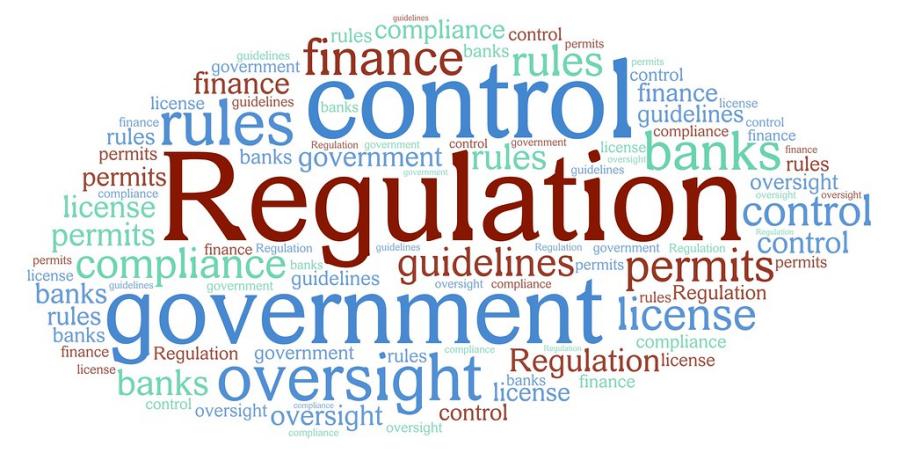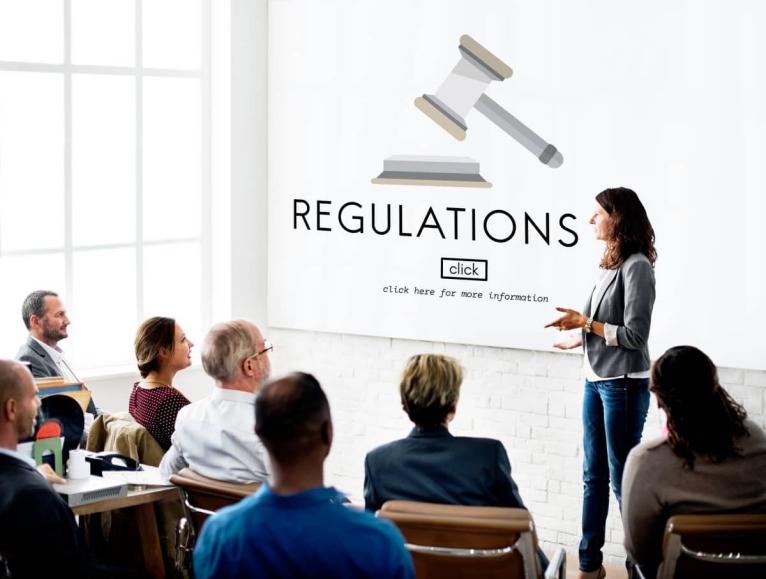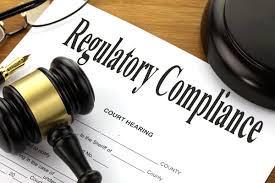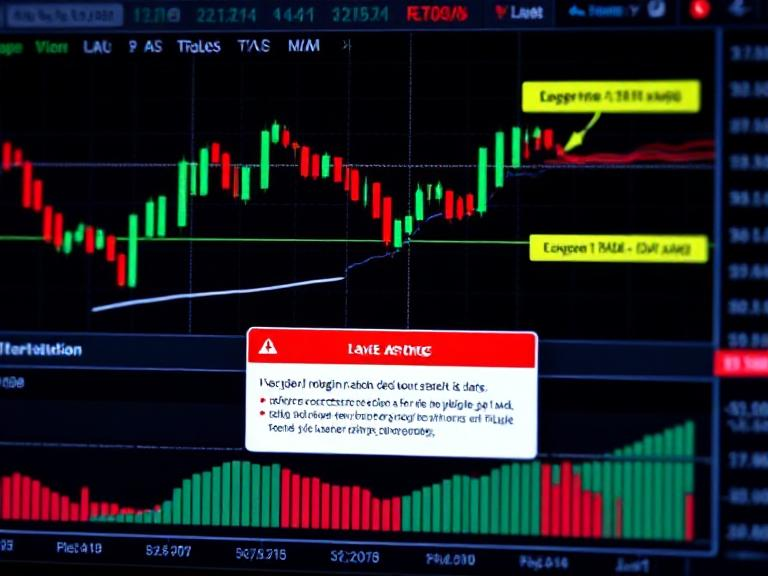Regulation and Compliance: Shaping Tomorrow's Smart Investments
In the rapidly evolving world of Web3, AI governance, and cross-border transactions, compliance is no longer just a corporate obligation—it's a strategic asset. For high-net-worth individuals and financially active adults navigating the complexities of decentralized finance and emerging digital landscapes, understanding the nuanced intersections between regulation and personal wealth is becoming more crucial than ever. In this new era, compliance isn't just a set of burdensome rules; it is a competitive advantage, a means to shape a brand's future, and a cornerstone for building trust in a fragmented world.
Gone are the days when regulatory frameworks existed solely to protect against fraud and malpractice. Today, they are indispensable tools in managing risk, safeguarding data, and positioning investments for success in an increasingly interconnected global economy. This shift has been particularly noticeable in sectors like AI, blockchain, and even luxury markets, where digital assets are becoming as valuable as physical property. To fully leverage these opportunities, it is essential to understand the often-overlooked areas of compliance that will define the next decade.

The Hidden Compliance Battlegrounds
One of the most underreported regulatory arenas in 2025 is the emergence of neurodata privacy laws. As brain-machine interfaces and neurotechnology evolve, the potential for misuse of personal data gathered from neural activity is becoming a growing concern. Countries are starting to draft policies to protect not just our physical but also our cognitive privacy, and this regulatory landscape will significantly impact how individuals in the tech, healthcare, and finance sectors manage their personal information. For those investing in cutting-edge biotech or AI-driven services, understanding these regulations is vital. The stakes are high, as failing to comply could undermine consumer confidence and restrict market access.
Another compliance battleground gaining traction is the intersection of decentralized finance (DeFi) with traditional financial regulations. While DeFi platforms promise greater autonomy and transparency, they also present significant challenges for regulators seeking to enforce KYC (Know Your Customer) and AML (Anti-Money Laundering) protocols. As governments work toward harmonizing these rules across borders, investors and entrepreneurs must stay ahead of regulatory shifts to ensure their operations remain compliant in an increasingly regulated environment. The key will be to strike a balance between the open, permissionless nature of decentralized finance and the regulatory frameworks that protect consumers and the broader financial system.
The third frontier is AI regulation, especially as the European Union's AI Act 2024 begins to take effect. While AI presents boundless opportunities for innovation, the governance of AI technologies—particularly in financial services, healthcare, and data analysis—will soon come under intense scrutiny. The AI Act aims to ensure that AI systems are transparent, accountable, and ethical, with provisions on everything from data protection to human oversight. For those investing in or utilizing AI-driven tools, it will be essential to track these developments closely to mitigate legal risks and capitalize on compliance as a strategic differentiator.

Traditional vs. DAO Compliance Models
A fascinating contrast emerges when we look at traditional corporate compliance models versus those employed by Decentralized Autonomous Organizations (DAOs). In traditional models, compliance tends to be top-down, with executives, legal teams, and regulatory bodies overseeing and enforcing rules. The focus is on centralized control and clear hierarchies. However, DAOs operate on a radically different principle: decentralized decision-making through blockchain-based smart contracts. While this offers new levels of autonomy and transparency, it also presents unique challenges for compliance, as there are no central authorities to hold accountable.
In DAOs, governance is typically achieved through token-based voting mechanisms, where stakeholders have a say in decision-making processes. This system can be more resilient and adaptive than traditional corporate structures, but it also makes it harder to enforce laws and regulations consistently. For individuals navigating this space, understanding how DAO compliance works is key. Often, DAOs will need to work within hybrid models, combining decentralized principles with traditional regulatory structures to ensure they meet both legal requirements and community expectations.
Behavioral Economics and Compliance: The Psychology of Adherence
For those actively managing portfolios in this complex regulatory environment, understanding the behavioral psychology behind compliance can offer significant advantages. Studies in behavioral economics show that individuals are more likely to adhere to regulations when they perceive them as being aligned with their personal values and interests. This is where the true potential of "compliance-as-competitive-advantage" lies.
For example, when a brand incorporates sustainability into its core compliance strategy—whether through environmental regulations, ethical sourcing standards, or data protection policies—it not only avoids legal pitfalls but also strengthens its appeal to consumers who value these principles. The same logic applies to investors who align their portfolios with compliant, ethical investments. They not only safeguard their wealth but also demonstrate leadership in areas like privacy, sustainability, and corporate responsibility.
By strategically positioning compliance as a lifestyle enhancer, companies and investors can unlock a new dimension of brand loyalty and consumer trust. This approach requires a deep understanding of both legal obligations and consumer psychology. The more a business integrates compliance into its narrative, the more it can turn regulatory adherence into a brand asset.

The Future of Compliance
Looking ahead, compliance will become increasingly complex, with new regulations continuously emerging across different sectors. To stay ahead, investors and corporations alike must adopt a forward-thinking approach, embracing compliance as an integral part of their broader business strategy. By transforming regulatory adherence from a mere legal requirement into a core value proposition, businesses can not only survive but thrive in a rapidly changing world.
As we approach 2026, there are clear tipping points on the horizon. Decentralized finance will likely become a focal point of global regulatory frameworks, particularly as more nations adopt unified standards for cryptoassets. Similarly, AI governance will continue to evolve, especially as the technology’s capabilities expand beyond what we can currently predict. Those who master the art of compliance now will find themselves not just following the rules but leading the way into a more secure and innovative future.
In this world of constant change, it is no longer enough to simply "keep up" with regulations. The businesses and individuals who embrace compliance as a strategic asset will position themselves to thrive, enhancing their reputations, strengthening customer trust, and ultimately maximizing the value of their investments. As the regulatory landscape continues to evolve, so too must our approach to navigating it—turning compliance challenges into opportunities for growth and success.
(Writer:Seli)





